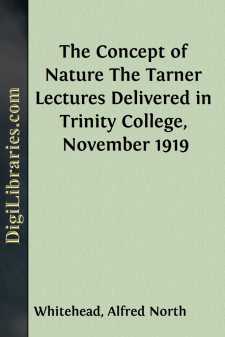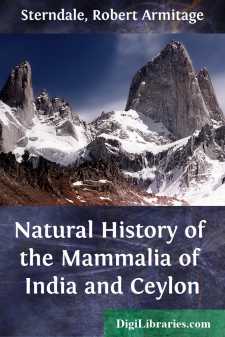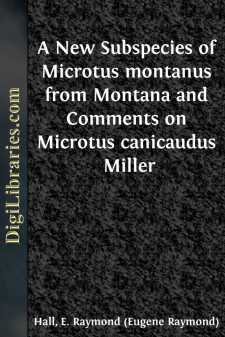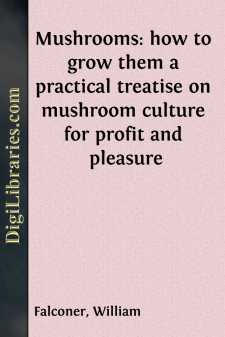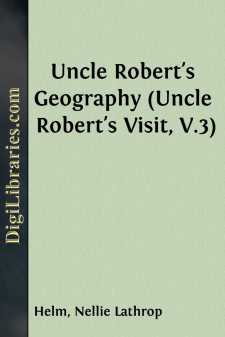Nature
Nature Books
Sort by:
by:
Jean-Henri Fabre
CHAPTER 1. THE HARMAS. This is what I wished for, hoc erat in votis: a bit of land, oh, not so very large, but fenced in, to avoid the drawbacks of a public way; an abandoned, barren, sun-scorched bit of land, favoured by thistles and by Wasps and Bees. Here, without fear of being troubled by the passers-by, I could consult the Ammophila and the Sphex (two species of Digger-or...
more...
PREFACE The contents of this book were originally delivered at Trinity College in the autumn of 1919 as the inaugural course of Tarner lectures. The Tarner lectureship is an occasional office founded by the liberality of Mr Edward Tarner. The duty of each of the successive holders of the post will be to deliver a course on ‘the Philosophy of the Sciences and the Relations or Want of Relations between...
more...
INTRODUCTION. In laying before the public the following history of the Indian Mammalia, I am actuated by the feeling that a popular work on the subject is needed, and would be appreciated by many who do not care to purchase the expensive books that exist, and who also may be more bothered than enlightened by over-much technical phraseology and those learned anatomical dissertations which are necessary...
more...
by:
William Harvey
Preface. I have been called upon to write illustrative sketches to a series of engravings, designed by an eminent artist. In performing my part of the work I have thrown the Mammalia into twenty-four groups—corresponding more or less to the picture designs—and have dwelt chiefly on the geographical distribution of the animals. The Cetaceae and Vespertilionidae are properly omitted. In the groups...
more...
WHAT species of mammals occur on the "coastal island", barrier beach, of Tamaulipas? Are the closest relatives of these mammals on Padre and Mustang islands of Texas, instead of on the mainland of Tamaulipas, or are the mammals on the barrier beach distinct from all others? These were questions that Dr. von Wedel of Oklahoma City and I asked ourselves in March of 1950 when we were in southern...
more...
IN 1949, for the Museum of Natural History of the University of Kansas, Mr. John A. White collected two specimens of the species Microtus montanus in the Bitterroot Valley of Montana, that did not fit the description of any named subspecies. These were laid aside until we could examine the additional specimens from Montana in the Biological Surveys collection in the United States National Museum, some...
more...
by:
William Falconer
PREFACE Mushrooms and their extensive and profitable culture should concern every one. For home consumption they are a healthful and grateful food, and for market, when successfully grown, they become a most profitable crop. We can have in America the best market in the world for fresh mushrooms; the demand for them is increasing, and the supply has always been inadequate. The price for them here is...
more...
by:
John Lubbock
INTRODUCTION The world we live in is a fairyland of exquisite beauty, our very existence is a miracle in itself, and yet few of us enjoy as we might, and none as yet appreciate fully, the beauties and wonders which surround us. The greatest traveller cannot hope even in a long life to visit more than a very small part of our earth, and even of that which is under our very eyes how little we see! What...
more...
The publishers take pleasure in offering to the public, in their Home-Reading Series, some books relating to the farm and other aspects of country life as the center of interest, written by Colonel Francis W. Parker, the President of the famous Cook County Normal School, in Chicago. For many years the teachers of the common schools of the country have been benefited by the inventions of Colonel Parker...
more...
olitude! Where under trees and sky shall you find it? The more solitary the recluse and the more confirmed and grounded his seclusion, the wider and more familiar becomes the circle of his social environment, until at length, like a very dryad of old, the birds build and sing in his branches and the "wee wild beasties" nest in his pockets. If he fails to be aware of the fact, more's the...
more...



